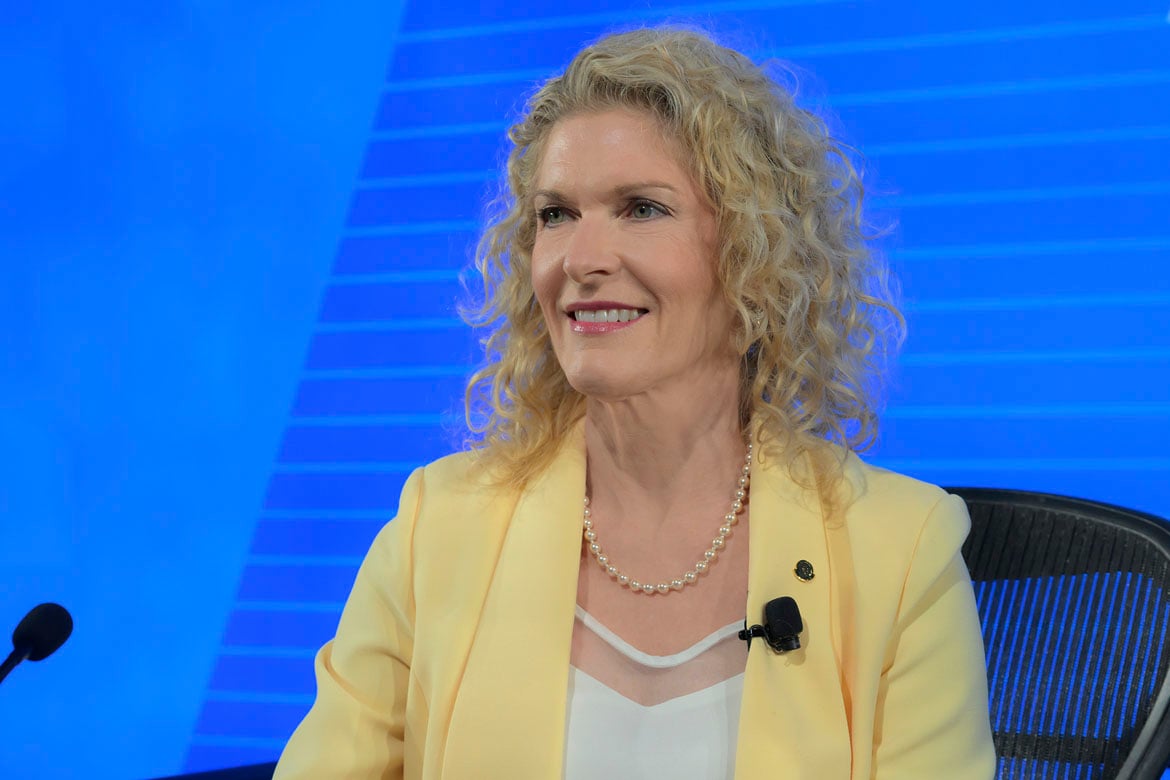Facing declining Medicare payments, Lisa Bohman Egbert, MD, had no choice but to close her solo ob-gyn practice in Dayton, Ohio, after nearly 30 years of service, and retire early. It was the hardest thing she ever had to do. Shuttering her practice meant that 2,500 Ohio women had to look for a new doctor, Dr. Egbert wrote in an opinion essay published in Stat.
Losing her practice and longtime patients was like losing a loved one. She also felt like she was losing her identity as a physician. “It was really hard,” she said.
But at the end of the day, a physician practice is still a business, said Dr. Egbert, speaker of the AMA House of Delegates.
For solo and small practices, what comes into the business is fairly simple, she explained during an episode of “AMA Update.”
“It's the fees that we earn by working as physicians. What goes out of the business that comes out of those fees is everything else—what you pay your staff, what you pay in rent, liability insurance, electronic medical records, on and on,” she said.
Physician payments over time have not kept up with growing overhead costs.
While Medicare payments to physician practices increased by only 7% since 2001, the cost of running a medical practice rose by 59% from 2001 to 2025, she summarized in her Stat article, citing AMA research (PDF). All told and after adjusting for practice-cost inflation, Medicare physician payment has dropped 33% since 2001.
“If nothing comes in to balance what has to go out, you basically get to the point where you aren't making enough to make ends meet,” said Dr. Egbert.
Struggling to stay open
As speaker of AMA House of Delegates, Dr. Egbert sees the irony in overseeing physician delegates’ discussions at AMA meetings about the broken Medicare payment system that led to her practice’s demise.
She did everything she could to keep her practice open: reducing staff, moving to offices with a cheaper rent or possibly looking into a hospital or private equity group to buy her practice.
“I was just too small for any of those entities to be interested,” she said.
While ob-gyns see relatively few Medicare patients, the problem still affects them because private insurance companies base their contracts on Medicare rates, as Dr. Egbert wrote in Stat.
Most people reach peak earning years in their late 40s and 50s. The highest salary Dr. Egbert ever earned was the $150,000 she took home in 1997, the year she started her private practice. By the time she closed her office, she was using her own savings to keep the practice going. Eventually, keeping it open was unsustainable.
Dr. Egbert is among the AMA member physicians who have stepped forth to share their personal stories from the front lines on how Medicare cuts are affecting them and their patients. Dozens of physicians were interviewed and the AMA is sharing some of their stories to show the real people behind the numbers who are being hurt.
Dive deeper to learn how Medicare pay cuts:
- Endanger physician practices.
- Threaten patients’ access to care.
- Especially affect rural America.
- Put even big medical groups at risk.
- Hit solo physician practices hard.
Tie Medicare payment to inflation
Dr. Egbert’s experience underscores the need for Medicare reform. But Congress failed to include a Medicare physician fix in a short-term bill that funds the federal government through Sept. 30. Instead, lawmakers have allowed Medicare cuts to go through for the past five years, including a 2.8% cut for 2025.
“It is imperative that Congress not only reverse those cuts but find a sustainable way forward to link Medicare payment to inflation,” Dr. Egbert wrote in Stat.
The AMA is leading the charge to reform the Medicare payment system, and has urged tying Medicare updates to the Medicare Economic Index (PDF), a measure of practice-cost inflation. Recently, the influential Medicare Payment Advisory Commission (MedPAC) has offered Congress a road map to move in this direction.
The AMA is leveraging its Fix Medicare Now website to push for long overdue reforms.
“I encourage all physicians and patients to go there and learn more about the crazy Medicare fee schedule and how it works and why it's stuck in Congress,” Dr. Egbert said.
Physicians can take action now to urge Congress to pass the Medicare Patient Access and Practice Stabilization Act (H.R. 879), which would replace the 2.83% cut for 2025 with a 2% Medicare reimbursement increase.
Patients are getting the message
Dr. Egbert had to say goodbye to patients who stayed with her for the duration of her practice. Several of them came from over an hour away because they wanted a female ob-gyn to care for them.
“I think they're getting the message as their physicians are leaving, because so many physicians like me, the independent, the small groups are just not having options other than to be bought up by a hospital or private equity or somebody else because the money just doesn't add up,” said Dr. Egbert.
The share of doctors working in physician private practices fell by 13 percentage points from 2012 to 2022, AMA research shows (PDF). Washington’s failure to fix Medicare is only exacerbating the trend.
Congress must fix Medicare and fix it now. “There is no alternative,” she said.
“AMA Update” is your source for physician-focused news. Hear from physicians and other experts on trending public health concerns, practice issues and more—because who’s doing the talking matters. Catch every episode by subscribing to the AMA’s YouTube channel or listen to all AMA podcasts at ama-assn.org/podcasts.




